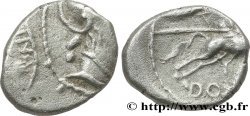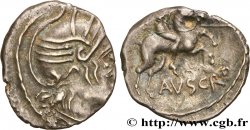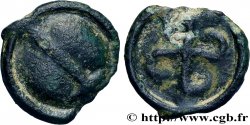Лицевая сторона
Аверс: легенда: DVRNACOS.
Аверс: описание: Tête casquée de Rome à droite.
Обратная сторона
Реверс: легенда: AVSCRO.
Реверс: Описание: Cavalier galopant à droite, le manteau flottant sur l'épaule, tenant une lance de la main droite.
Комментарий
Историческая справка
GALLIA - RHONE VALLEY
(1st century BC)
The coinage of the Rhone Valley poses many problems of geographical attribution; it was very long given to the Voconces who were settled between the Durance and the Isère, between the Cavares and the Allobroges. Their capital was Vasio (Vaison-la-Romaine). Very important road junction between Italy and Gaul, one of the routes allowed to reach Susa by Mont Genèvre. In fact, this set of coins to the rider is now reassigned to the Allobroges, a people whose territory covers most of Savoie and Dauphiné. Surrounded by the Séquanes, the Ambarres and the Helvetii to the north and east, by the Voconces to the south and the Segusiaves and the Helvians to the west on the right bank of the Rhône, it was one of the most powerful of Gaul. They controlled the river traffic on the Rhone at the entrance to Lake Geneva, in Geneva (Genua), opposite the Helvetii and in Vienna (Vienna), their oppidum. Settled for a long time in Savoy and Dauphiné, their origin seems foreign according to their name and it is possible that they settled in Gaul in the 4th or 3rd century BC.. -VS. It was partly on their territory that Hannibal tried to cross the Alps in 218 BC.. -VS. The Allobroges nevertheless tried to oppose his passage. At the end of the 2nd century BC, they joined the coalition formed by the Arverni to oppose the advance of the Romans in the Rhone Valley. Allies of Bituit (Bituitos), king of Arvernes, they were defeated in 121 BC. -VS. by Cneius Domitius and their territory was incorporated into the new province of Narbonnaise. The Cimbri and the Teutons devastated part of their territory at the end of the 1st century BC.. -VS. They called the Romans to the rescue. Then it was the turn of the Helvetians in 58 BC.. -VS. when the latter tried to cross their territory in order to reach Saintes. In 61 BC. -VS. , the Allobroges revolted against Roman rule and the poor administration of a procurator. The revolt was crushed the following year. The Allobroges did not participate in the campaign of 52 BC. -VS. and remained loyal to the Romans despite having received secret embassies and offers of alliance from Vercingetorix. Sources: Polybius (H. III, 49-51); Caesar (BG. I, 6, 10, 11, 14, 28 and 44; III, 1 and 6; VII, 64 and 65); Livy (HR. XXI, 31); Strabo (G. IV, 1). Pliny (HN. II, 150; III, 34, 37 and 124; VII, 78; XIV, 83; XXIX, 54). Kruta (63, 71, 290, 300-302, 308-310, 338, 404, 853, 860 and 864).









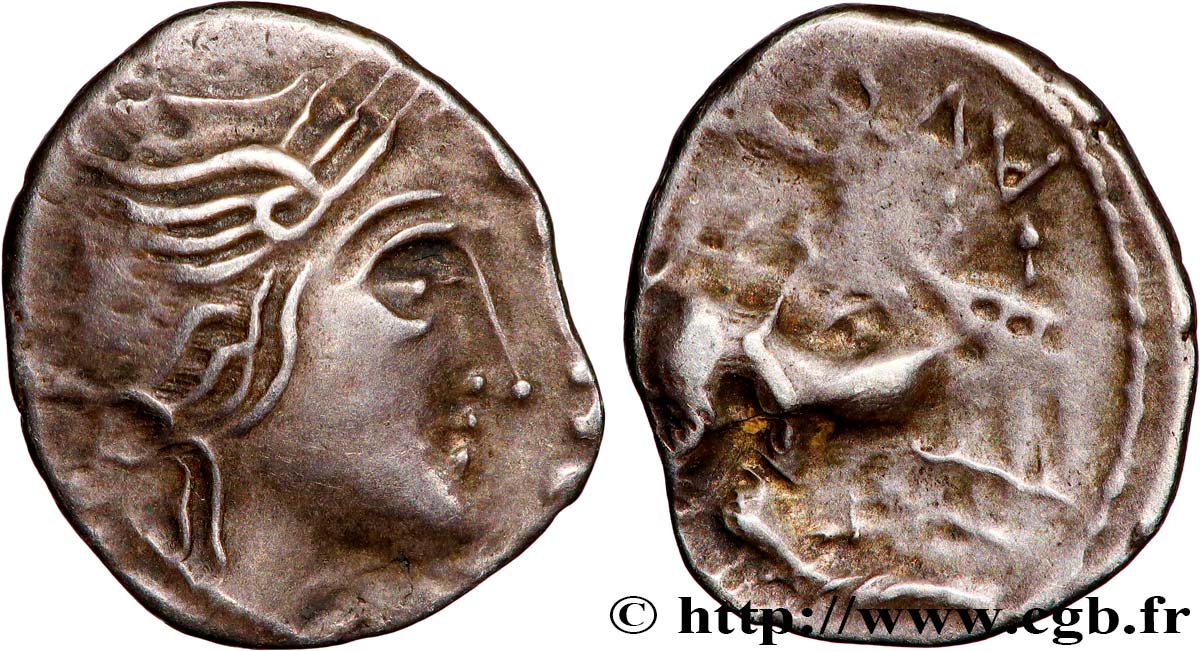
 Cообщить об ошибке
Cообщить об ошибке Распечатать страницу
Распечатать страницу Отправить мой выбор
Отправить мой выбор Задать вопрос
Задать вопрос Consign / sell
Consign / sell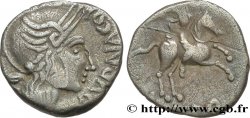
 Информация
Информация